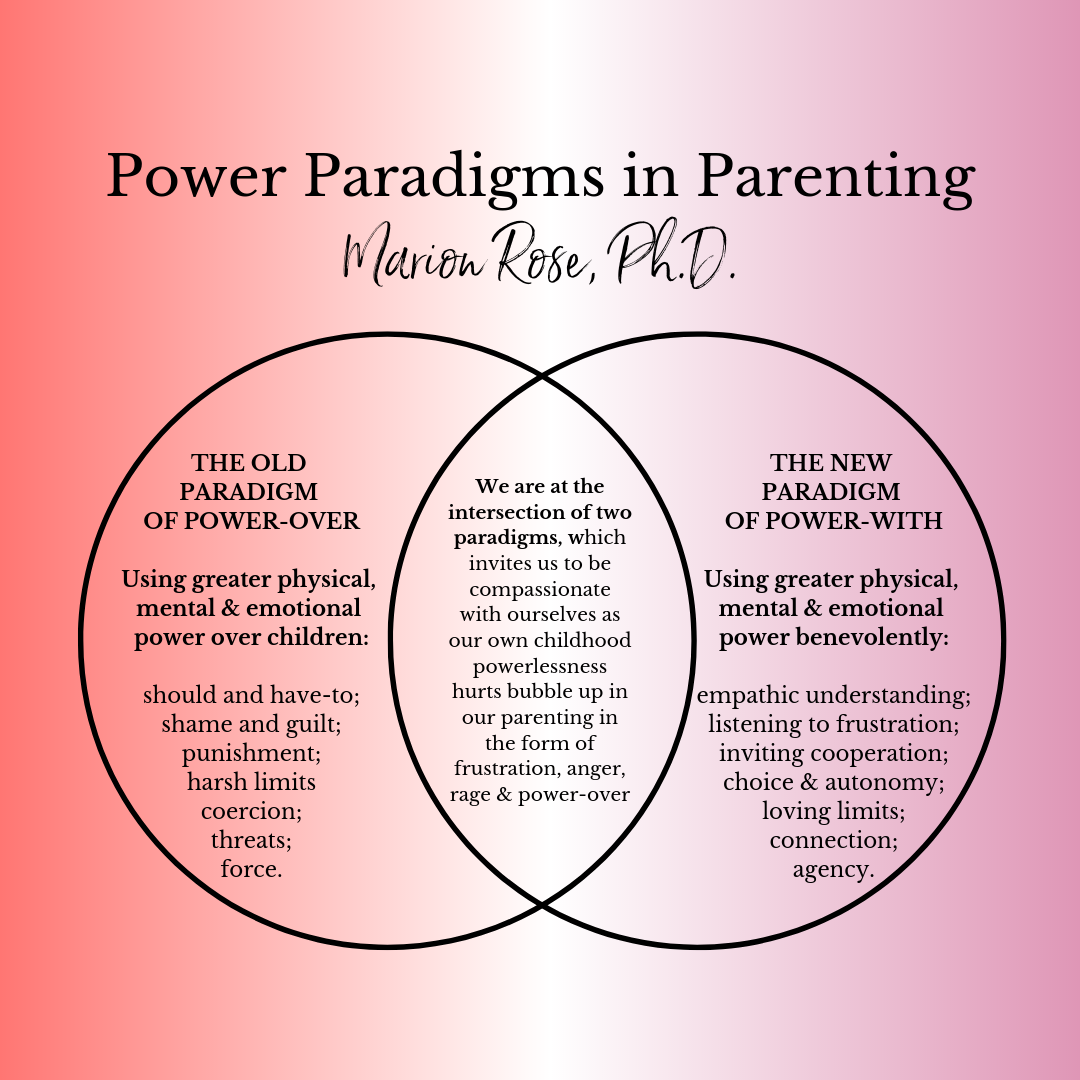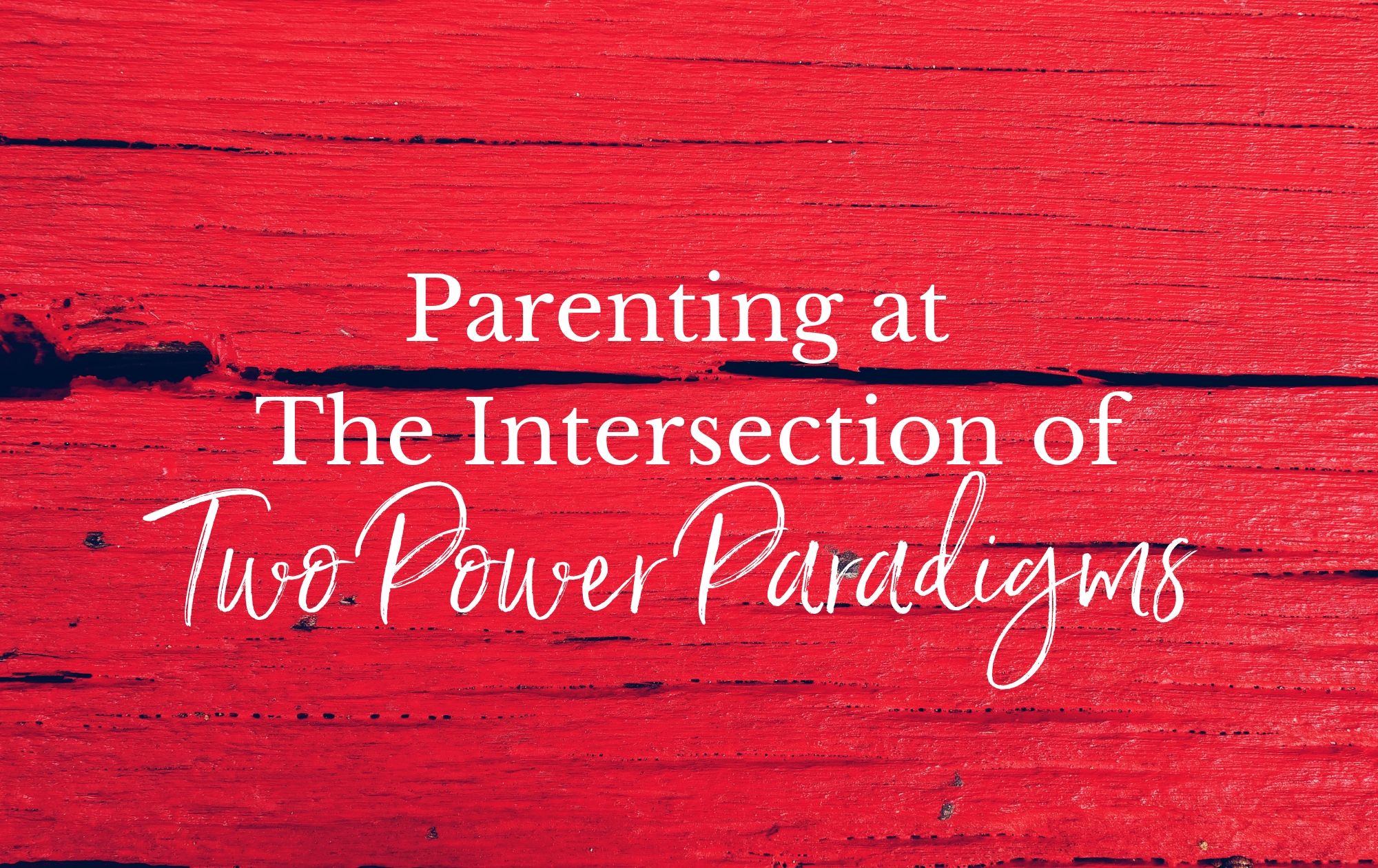We are at the tail end of a long long time of power-over in parenting, and a new paradigm of power-with is coming into the world.
In this transition phase, most of us are at the intersection of these two paradigms.
In the old paradigm, parents, who have more physical, mental and emotional power than children use that power over children to make the children do what the adults want and make the children stop doing what the adults don’t want.
The most common forms of this are:
Force;
Physical coercion;
Physical and emotional punishment;
Harsh limits;
Shame;
Emotional coercion and guilt;
Threats;
Should and have-to;
Can’t.
In the new paradigm, parents use their greater physical, mental and emotional power in benevolent ways to support both children and parents getting their needs met.
This includes:
Giving plenty of choice, autonomy and agency;
Inviting cooperation and willingness through connection, play and compassion;
Compassionately understanding the causes of children’s behaviour;
Responding in effective and empathic ways to help children be willing to cooperate;
Loving limits when children are hitting, pushing, biting or throwing – and listening to the feelings that are causing the behaviour in the first place.
The thing is, since we are at the intersection of the two paradigms, our own conditioning and our own childhood powerlessness hurts will inevitably bubble up as we aim to parent in power-with ways.
These are likely to show up in the following ways:
Coercing ourselves to parent in ways we want to and punishing ourselves when we don’t act in the ways we want to;
More subtle forms of power-over, such as rewards, should’s and cant’s;
Us not choosing to meet our own needs and feeling resentful;
Telling ourselves we can’t get our needs met and feeling flat or depressed;
Meeting our child’s needs at the cost of our own and feeling powerless;
Childhood feelings of frustration or outrage showing up when our child won’t cooperate or says, “no” or won’t stop doing what we don’t want them to be doing;
Flipping from powerlessness to power-over such as shouting, shoulding, shaming or slamming doors.
What can we do?
Understand the bigger picture (which is why I’m sharing this) of the shift in paradigms;
Increase our capacity to be compassionate with ourselves around how hard this can be;
Find emotional support from other parents and professionals who understand;
Find our own true inner power;
Gradually change our inner dialogue to free ourselves of the inner coercion of should’s and guilt and replace it with compassion and willingness;
Give ourselves choices and autonomy;
Listen to our inner childrens’ feelings of powerlessness and give them reparative experiences of choice and compassion;
Increase our capacity to be lovingly present with our feelings of frustration and outrage so we can prevent ourselves from flipping into power-over;
Repairing with our child whenever we do flip into power-over.
You can find out more in my free intro to Power and Powerlessness in Parenting or my Power and Powerlessness in Parenting Course.

